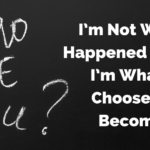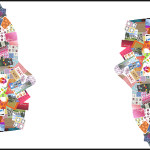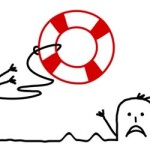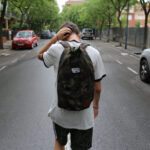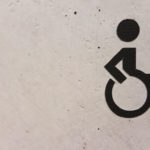
Healing from loss… involves weaving together the remaining fragments of one’s assumptive world to recreate an existence that has purpose, meaning and some semblance of predictability and order.
Feeling a sense of safety is a basic need. More to the point: maintaining the illusion of safety is so important that we must continually re-imagine it in order remain sane. The task, however, is getting harder and harder to accomplish in our current upside down world.
Illusion of safety is wearing mighty thin
When 9/11 happened we were incensed that anyone would have the gall to make us feel so vulnerable. Add the “great” recession, mortgage crisis, real estate collapse, unemployment, school and public massacres, home grown terrorist activity, record youth suicide rate, racial tension, cybercrime, and climate disasters, and one could say it is getting harder and harder to reweave the fragments of our world back into a state of predictability and order.
Top it off with the fact that when our financial and manufacturing sectors chose to globalize their operations, the entire world’s political, religious, economic, medical and social problems became ours as well. Therefore, it is not surprising that the edges of our peace of mind are seriously frayed.
If you have slept through the last years of assault on your lifestyle, the Ebola outbreak likely caused you to notice that the world’s healthcare system can’t handle every imaginable medical crisis.
When we lose –anything – we grieve
Typically we survive loss by slowly making sense of what has been taken from us, and from there we proceed to restructure the way we view the world without what we once cherished. Thomas Attig refers to this process as “relearning the world.”
During this period of transition, we struggle between our desire to have things return to the way they were and the pull forward to accept the way things are. The personal task of coping with loss and regaining traction is more difficult when the world stage doesn’t provide stable support.
Juggling your need for safety with your fear and rage over not having it
Losing you sense of safety can cause you to flip between feeling numb and exhausted to feeling angry, anxious, and afraid. It is important that these feelings don’t translate into bad behavior, so set aside time with family and friends to openly discuss how “scary” feels and what you might do to diffuse some of the stress. Don’t, however, conclude your discussions by agreeing that the current world instability means you are helpless and life is hopeless. It simply isn’t true.
Consider the following to keep your balance.
- Practice creative forgetting. Anger and blame provide momentary rushes of adrenaline and a temporary sense of control, but such behavior is seldom effective. Remember, stress lowers your immune system and sets you up for emotional and physical dis-ease—so break your normal routine occasionally in order to recharge.
- Stay reasonably informed, but don’t become a TV disaster junkie. Also be aware that 24/7media reporting feeds on people’s mistakes but neglects to report what’s going well.
- Consider the governmental wisdom of not disclosing every gory detail. Hysteria can be costlier to contain than contagious disease.
- Understand you are not your thoughts and emotions. You HAVE thoughts and emotions. “I am feeling/thinking I am unsafe” is far less threatening than “I am unsafe.”
- Set aside time to become physically active.
- Take five minutes every hour to close your eyes and become aware of your breath and your body. For example, feel your feet in your socks within your shoes. Feel the floor under your feet. Be aware of the seat and the back of your chair supporting you. Notice your elbow, your earlobe, your ankle.
- Learn—as well as teach by example—how to become comfortable with discomfort during difficult times. Practice! It is easier than you think once you grasp the concept
- DON’T MAKE THE MISTAKE OF ISOLATING.
While wanting to isolate your family from all risk is understandable, it is unwise. It will only destroy your loved ones’ ability to be flexible, empathetic and objective. Also, if you make it a practice of turning in and away from others, you run the risk of establishing a pattern of never turning back to accept the responsibility that is clearly yours.
You do have an option: focus locally.
Ask yourself where you can be locally helpful vs. helpless. By being socially active you gain a sense of control and purpose, and help others to do the same. Remind yourself and others that you will never be able to buy a bottle of safety, but feeling threatened doesn’t mean life is not worthwhile.
If you have skipped through this post – here it is in a nutshell:
- Fear is contagious. You are more likely to catch it than Ebola.
- Bad news is not fatal.
- Once you are reasonably informed, turn off the news—and go out of your way to do something exceptionally decent for another.
- Start a quiet revolution. TURN OUT and become a student as well as a teacher. Use technology to connect, organize, solve and anticipate local problems. To get started call your school district and county volunteer departments to find out where help is needed—and then start to rebuild a safer world from bottom up. You won’t regret it!


